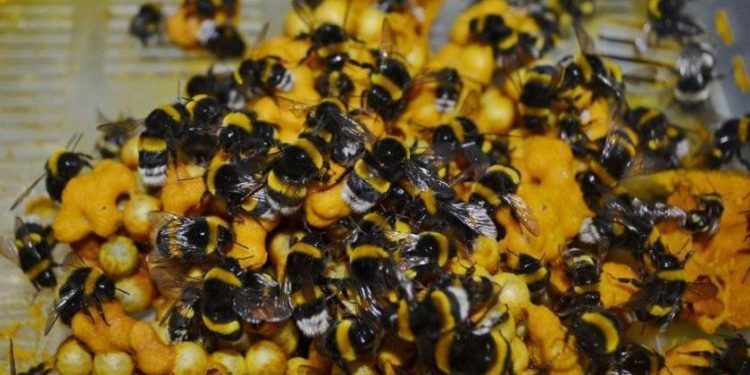#agriculture #greenhousecomplex #pollinators #seeds #supplychain #cropproduction #beepopulations #sustainability #localcollaborations #alternativepollinationmethods #seedqualitycontrol #self-sufficiency
This article delves into the struggles faced by a Japanese-Russian greenhouse complex in sourcing sufficient pollinators and seeds for optimal crop production. By examining the latest data and insights from various sources in the agricultural industry, we shed light on the current challenges and potential solutions that can benefit farmers, agronomists, agricultural engineers, farm owners, and scientists working in agriculture.
According to a recent report by Agroinvestor, the Japanese-Russian greenhouse complex is grappling with significant difficulties in procuring essential pollinators, such as bees, and high-quality seeds required for successful crop cultivation [source: Agroinvestor]. The shortage of pollinators and reliable seed supplies has become a major concern for the complex, leading to potential setbacks in their agricultural production.
The scarcity of pollinators is a growing issue worldwide, affecting the pollination-dependent crops crucial for global food security. Factors such as habitat loss, pesticide usage, and climate change contribute to the decline in natural pollinators. Bee populations, in particular, have experienced a decline due to the phenomenon known as colony collapse disorder. This decline threatens the pollination services required for a wide range of crops.
In the case of the Japanese-Russian greenhouse complex, the reliance on imported pollinators exacerbates the challenges. Importing bees from abroad introduces logistical hurdles, including transportation delays, potential health risks, and increased costs. Moreover, the global supply of bees is limited, which further compounds the problem. The shortage of pollinators directly impacts the yield and quality of crops within the greenhouse complex.
Another significant obstacle faced by the complex pertains to the availability and quality of seeds. The reliance on external suppliers for seeds exposes the complex to potential disruptions in the supply chain. Unpredictable factors, such as geopolitical tensions, trade restrictions, and climate-related challenges, can hinder the timely delivery and availability of high-quality seeds, compromising the entire cultivation process.
To address these challenges, it is crucial for the Japanese-Russian greenhouse complex and similar agricultural enterprises to explore sustainable and locally adaptable solutions. Encouraging the establishment of on-site pollinator habitats, such as bee-friendly gardens or managed hives, can help mitigate the reliance on external pollinator supplies. Additionally, investing in research and development for alternative pollination methods, such as artificial pollination or the use of other pollinator species, could provide long-term solutions.
Regarding seed supplies, promoting domestic seed production and diversifying sources through collaborations with local seed breeders and seed banks can enhance reliability. Implementing seed quality control measures, including rigorous testing and certification procedures, can ensure the procurement of viable and disease-free seeds. Furthermore, investing in seed storage facilities and developing seed banks can help mitigate the risks associated with supply chain disruptions.
The challenges faced by the Japanese-Russian greenhouse complex in sourcing pollinators and seeds highlight the broader concerns within the agricultural industry. The shortage of pollinators and the reliance on external seed suppliers pose significant risks to crop productivity and sustainability. By embracing innovative approaches, fostering local collaborations, and investing in research and development, farmers, agronomists, agricultural engineers, farm owners, and scientists can collectively work towards overcoming these challenges and securing a more resilient and self-sufficient agricultural system.











